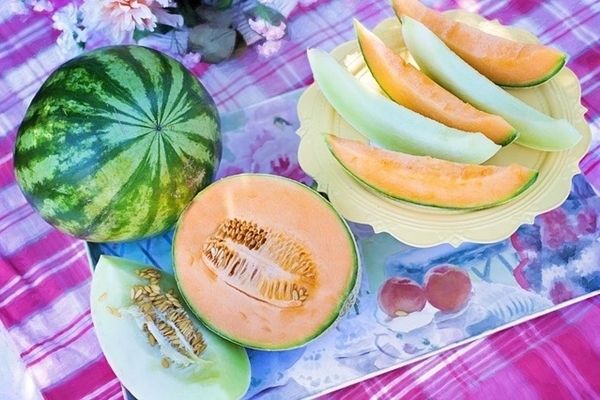The refrigerator seems to be a safe haven for food. It keeps everything cold, and what could be better than food that is protected from the possibility of spoilage.
Well, not all foods need to be refrigerated. As a matter of fact, refrigerating some foods may actually decrease their longevity. Here are some foods you may want to keep out of the fridge.
Fruits
There are a number of fruits that do not belong in the fridge. These particular fruits are best kept in an environment that is room temperature as it helps to facilitate ripening.
Melons
All melons should be kept on a counter. Doing so allows melons to ripen increasing their flavor. Once the melon is cut, it can be stored in the fridge for up to four days.
Stone Fruit
Stone fruit includes peaches, nectarines, apricots, and plums. Ripe peaches are a delicious summertime snack, but they will never get ripe inside the refrigerator.
Avocados
Avocados are another fruit that is best kept at room temperature. This allows for the ripening process to occur naturally. Only place them in the fridge if they are already ripe and you want to use them fairly soon.
Bananas
Bananas and the fridge are a no-no. Bananas, like many other fruits, ripen at room temperature. The moisture and cold air in the refrigerator will cause the bananas to go rotten.
Berries
Berries do well at room temperature as well. The moisture from the refrigerator can lead to soft, mushy berries…especially raspberries.
Tomatoes
Tomatoes in a cold refrigerator develop a mealy texture from the cold air and moisture. To get the best flavor from tomatoes, allow them to sit on the counter at room temperature.
Vegetables
There are some vegetables that are best stored in cool, dry places such as the vegetables below.
Potatoes
Moisture and potatoes are not a good mix. Potatoes are nightshade vegetable that needs cool, dark, dry storage to prevent deterioration. Also, cold temperatures break down the starch in potatoes making them gritty.
Onions
Uncut onions are best placed at room temperature where they can receive proper ventilation. Too much moisture will cause onions to become mushy and moldy. Once the onion is cut, it can be placed in the fridge.
Garlic
The flavor of garlic is best maintained by storing it in a dry, cool, ventilated container. Once ahead of garlic is broken, it is best to use the garlic cloves within 10 days.
Condiments
Many condiments do not require refrigeration…even after opening.
Honey
Refrigerating honey causes it to crystallize. Raw honey can become hard. All honey is best kept out of the refrigerator.
Hot Sauce
Hot sauce doesn’t need to be refrigerated. In fact, the cold air reduces the spice of the hot sauce. Plus, the vinegar in the hot sauce prevents the formation of bacteria.
Ketchup and Mustard
This dynamic condiment duo can stay together outside of the refrigerator. Both of them contain various acids…some from vinegar…that keep them counter-safe after opening.
Miscellaneous Items
Here are some random items that you may feel the need to refrigerate, but you really don’t have to.
Coffee
If you want to ruin your cup of morning Joe, refrigeration is the way to do it. The cold air actually reduces the flavor of the coffee. It doesn’t matter if the coffee is whole or ground, no coffee in the fridge. Use an airtight container for storage instead.
Bread
You may place bread in your freezer for long-term storage, but the bread you want to use now is best placed on the counter. Putting bread in the fridge will cause it to dry out leaving it hard and unappetizing.
Peanut Butter and Spreads
Peanut butter and complimentary chocolate hazelnut spreads do not require refrigeration. In fact, the cold air reduces the flavor of the chocolate hazelnut spread.
Knowing which foods don’t belong in the refrigerator can help you enjoy the taste of your food while keeping it fresher longer.





